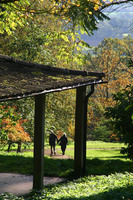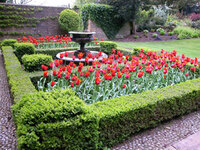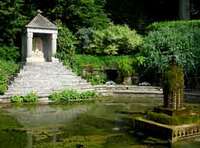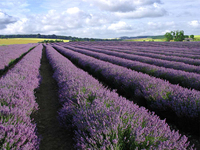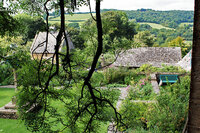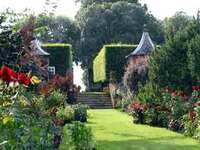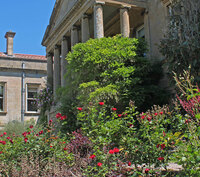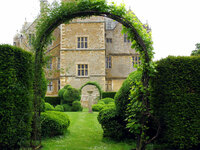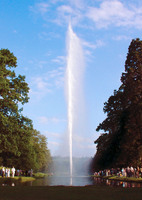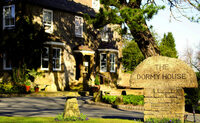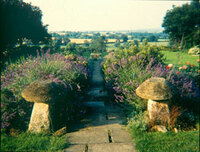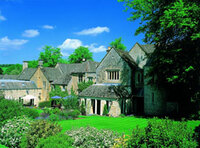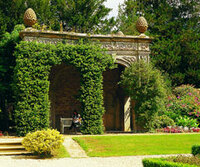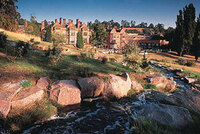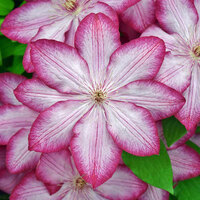- England
- Scotland
- France
- Holland
- Germany
- Italy
- Spain
- Portugal
- USA
- China
- Japan
- India
- Iran
- Advice
- Gardens
- England
- Scotland
- France
- Holland
- Germany
- Italy
- Spain
- Portugal
- USA
- China
- Japan
- India
- Iran
- Advice
- Garden Tours
Established in 1965, the garden surrounds a Cotswold watermill with stream and millpond. It is a garden of many rooms - a cricket lawn, innovative fruit garden, rose walk, and herb potager with the village church as a back drop. Alkaline/neutral clay and Cotswold brash soil - steeply sided valley running East-West, a frost pocket at the bottom by the water, sunlit hills at the top three weeks ahead of the rest of the garden.
See Mill Dene Gardens on Instagram #milldenegarden
‘I was looking for the ‘essence’ of the Cotswolds and have found it at Mill Dene,’ said a kind Japanese visitor.
Surrounding an very old watermill, and hugging the sides of a tiny valley Mill Dene Garden really is hidden in the Cotswolds and is a place of tranquility and rest: after all there are 10 seats!
One can sit by the mill pond and watch the kingfisher if lucky. The trout and the Birman cats are more reliable. The steam behind the house has an air of mystery with a misty grotto and shade plants. The herb potager has the village church as a back drop and is probably sited over a Saxon burial ground. It has views over the hills to the Salt Way and gentle sounds of water in rills and basins and, of course, scent.
The cricket lawn with a tiny Pavilion, (much disparaged by Rosemary Verey,) entertains the grandchildren. (They helped to design the garden hunt for children up to 13.) The flower beds are quite nice, too.
The Rose Walk, a terrace down from the Cricket lawn, benefits from 6’ of top soil owing to a landscaper’s mistake! The weeping standards of ‘Super fairy’ seem to like it.
The feel of the garden is light-hearted with the use of mirrors, trompe l’oeil, concealment and surprise apparently altering the boundaries and size of the garden. The owner, Wendy Dare, with help from Rupert Golby, has designed a highly individual garden. She started from nothing and, responding to the strong sense of place, has made a garden in the ‘English Country Garden’ style The result is delightful.
There are 12 mills in Blockley and three of them are in the Domesday Book (1086) and one of these is Mill Dene. It may have been part of the wool industry or the silk industry but the only thing we know for sure is that it was an iron foundry. Some of the 'slag' , iron ore residue is visible in the garden.
Neutral to just alkaline soil. So no rhododrendrons. Spring bulbs are wonderful as is the Rose Walk in june and July.
Colour all year.
Mill Dene, Blockley, Moreton-in-Marsh, Gloucestershire, England, GL56 9HU
See Mill Dene website for details:-
